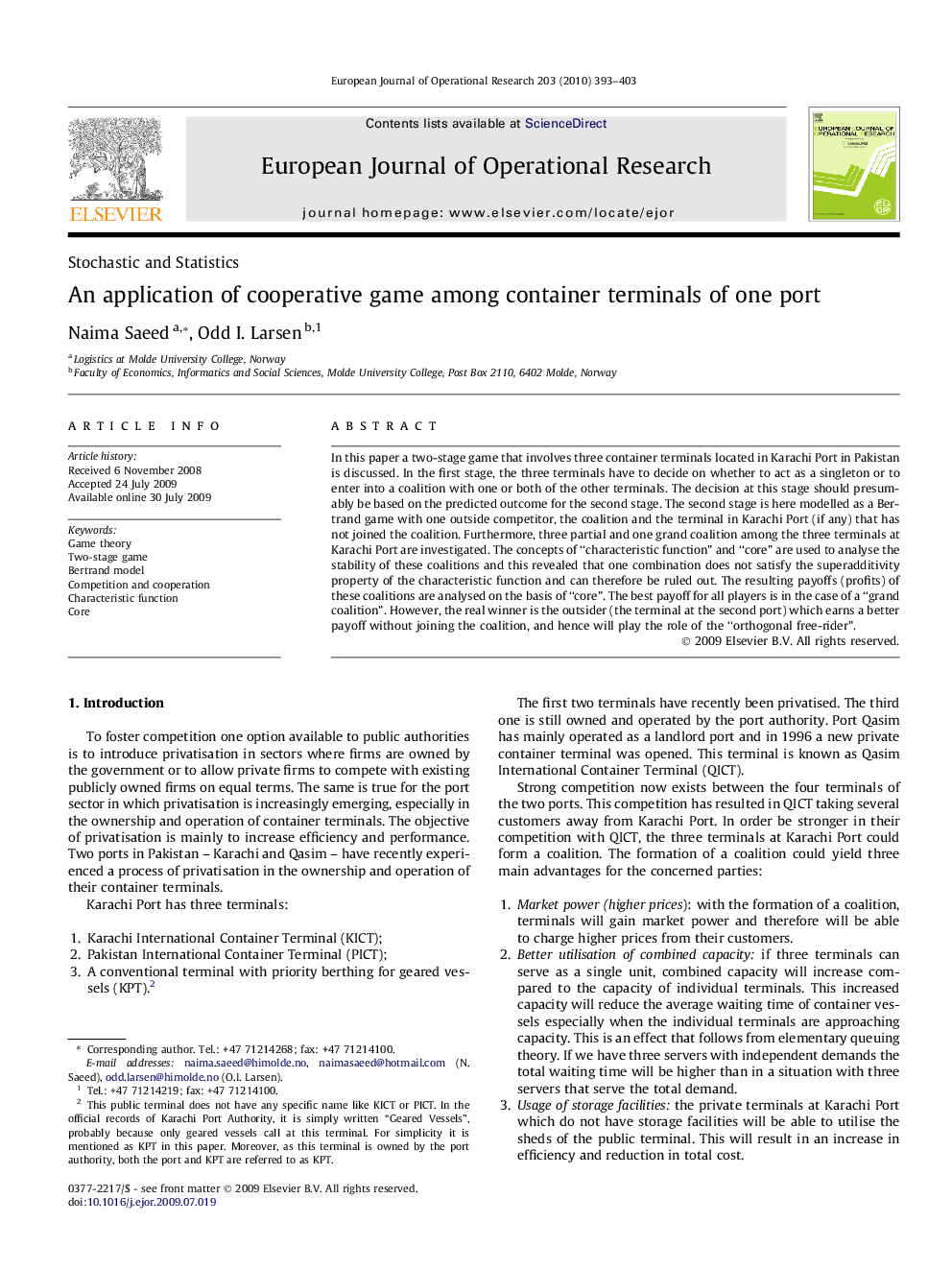| Article ID | Journal | Published Year | Pages | File Type |
|---|---|---|---|---|
| 480587 | European Journal of Operational Research | 2010 | 11 Pages |
In this paper a two-stage game that involves three container terminals located in Karachi Port in Pakistan is discussed. In the first stage, the three terminals have to decide on whether to act as a singleton or to enter into a coalition with one or both of the other terminals. The decision at this stage should presumably be based on the predicted outcome for the second stage. The second stage is here modelled as a Bertrand game with one outside competitor, the coalition and the terminal in Karachi Port (if any) that has not joined the coalition. Furthermore, three partial and one grand coalition among the three terminals at Karachi Port are investigated. The concepts of “characteristic function” and “core” are used to analyse the stability of these coalitions and this revealed that one combination does not satisfy the superadditivity property of the characteristic function and can therefore be ruled out. The resulting payoffs (profits) of these coalitions are analysed on the basis of “core”. The best payoff for all players is in the case of a “grand coalition”. However, the real winner is the outsider (the terminal at the second port) which earns a better payoff without joining the coalition, and hence will play the role of the “orthogonal free-rider”.
